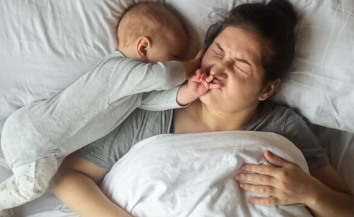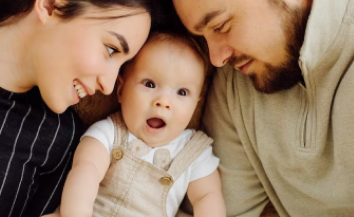You may also like…
"Sleep problems with a new baby can be challenging, but remember that you're not alone, and that with time and patience, things will get better."
Infant Sleep Problems
At 6 months of age, most babies have started to sleep at night (nocturnal sleep patterns), this means that these babies have uninterrupted sleep at night and is described as “sleeping through the night.” Babies do not actually sleep the whole night but develop self-regulated sleep which is defined as the ability to fall back asleep without needing parental help, this takes time to develop. 
“Infant sleep problems,” include many definitions that have been described as problem falling asleep, nighttime awakenings, and a short duration of uninterrupted sleep, and are present in 20-30% of all infants and toddlers (Annemieke M. Witte a, 2021). Newborn babies wake up multiple times during the first few months and these disturbed nights are difficult to cope with, ask for help with a living partner. If you’re bottle feeding take help from a partner.
If you’re breastfeeding, you can ask your partner to do other chores such as the clean-up morning routine. Eventually, when you establish a routine, it will be easier to work around disturbed nights.
What is the downside of baby sleep problems?
Sleep problems in infants have been linked with a range of negative child and parental results which include behavioral issues in children, and negative general health and depressive symptoms in parents:
- Behavioral problems in children (irritable, moody, difficulty concentrating)
- Learning difficulties (consolidating memories, poor academic performance)
- Impaired growth and development
- Health problems (sleep problems lead to obesity, diabetes and cardiovascular disease)
- Emotional problems (anxiety and depression)







